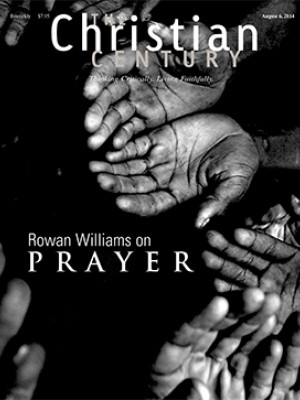Sexuality issues rarely prime cause of schism
The top legislative body of the Presbyterian Church (U.S.A.) votes to allow ministers to preside at same-sex marriages and recommends changing the church’s definition of marriage to that of a “unique commitment between two people.”
In the United Methodist Church, a pastor defrocked for performing a same-sex marriage for his son is reinstated by a regional appeals committee.
As usual in the decades-long denominational debates over sexuality, each of these recent developments revived talks of schism and of the potential of a mass exodus of congregations.
Yet for all the furor whipped up in denominational politics and cultural debates over issues such as same-sex marriage, little evidence exists that they make a critical difference in the vast majority of local congregations.
Several studies indicate that disputes over gay rights are not a major source of conflict in congregations. And evolving public attitudes make it even less likely the issue will split large numbers of local churches, according to some researchers.
What matters in the neighborhood church are issues of pastoral care and spiritual growth built on a foundation of deep social networks cultivated over time. Those worshipers for whom issues of sexuality are a major concern tend to gravitate toward churches that embrace their views, researchers note.
Read our latest issue or browse back issues.
“What happens in a local congregation is a completely different animal than talking about conflict at the denominational level,” said Cynthia Woolever, who for many years directed the U.S. Congregational Life Survey. “It just doesn’t make sense that this is going to be a conflict at the local level because people sort themselves out.”
Gay marriage is considered an important ethical issue by many in the nation. More than half of Americans say their position on same-sex marriage is “moderately” or “very much” a reflection of their core moral beliefs and convictions, according to the 2012 Measuring Morality Study.
In most local neighborhoods and pews, however, the issue does not rise to the top of the agenda.
In ranking 12 issues from the economy to illegal immigration to the environment, respondents to the morality study said same-sex marriage was far and away the least important challenge facing the nation today.
In an online survey conducted by the United Methodist Church this spring, members said the most important issues facing the denomination are creating disciples for Christ, getting more youth involved, helping people grow spiritually, and addressing membership losses. Issues of sexual orientation and same-sex marriage ranked eighth.
Sexuality issues are also way down the list when it comes to generating conflict in congregations, research indicates.
Pastoral leadership issues, finances, and worship changes were the leading sources of conflict reported by congregational leaders in the 2008–2009 U.S. Congregational Life Survey. Concerns over buildings and changes in music style were among several other sources ranking higher than conflict over homosexuality.
In a separate study, about a quarter of congregations reported having a conflict serious enough to call a special meeting in the last two years. The dispute was about homosexuality in some 3 percent of the cases, according to the 2006–2007 National Congregations Study.
Woolever said the congregations most likely to split over the issues are those with strong, theologically driven leaders who convince their flocks that the larger church no longer represents their faith.
For many congregations, however, “it just seems irrelevant,” said Woolever, coauthor with Deborah Bruce of A Field Guide to U.S. Congregations.
Sociologist Dawne Moon of Marquette University said gays and lesbians in particular are likely to avoid congregations that are hostile to their sexual orientation.
“People are more likely to look for congregations they are comfortable in already,” she said. “People don’t really care as much about the particular denomination as what happens in a congregation.”
Rapid changes in public attitudes toward gay rights issues also appear to be paving the way for change in many denominations. In Pew polling, 54 percent of Americans in 2014 supported same-sex marriage; in 2001, just 35 percent said gays and lesbians should be allowed to legally marry.
Nearly 500 years ago, Martin Luther posted his 95 Theses on the door of All Saints’ Church in Wittenberg, helping set the Protestant Reformation in motion. In the mid-19th century, the Methodists and Presbyterians split into Northern and Southern bodies even before the start of the Civil War.
Those were real schisms. If there ever was a likelihood that issues of gay rights would provoke a major split in U.S. Christianity, it appears that time may have passed. —theARDA.com
Reprinted with permission of the Association of Religion Data Archives






